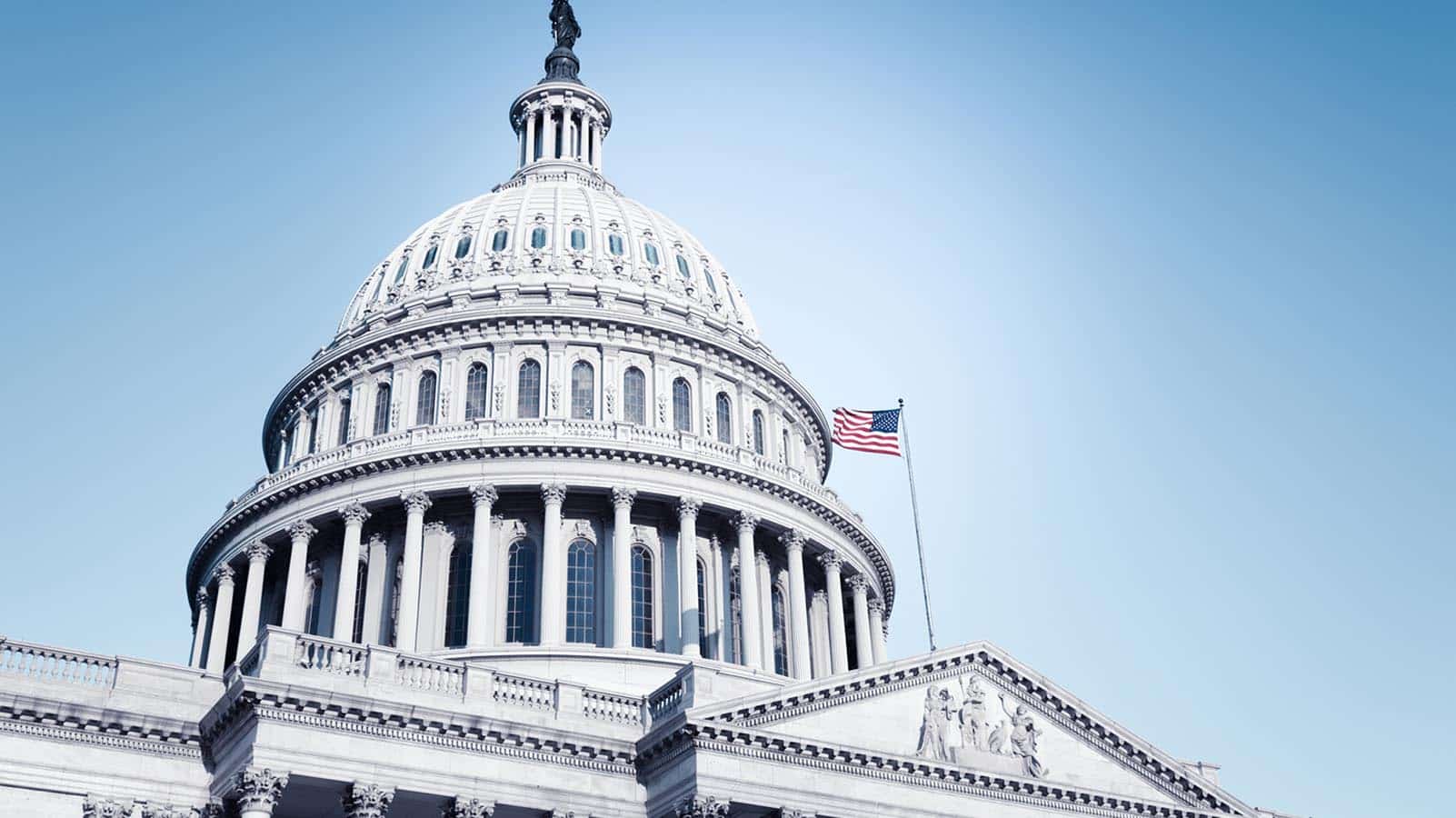Defense contracting fraud not only wastes billions of taxpayer dollars on ineffective or overpriced goods and services, potentially weakening national security, but also directly jeopardizes safety and effectiveness when substandard, defective, or dangerous equipment and services are provided resulting from fraud.
If you’re a whistleblower and would like to report such fraud, contact our law firm today for a free and confidential consultation.
Nationally Recognized as One of the Best Defense Contractor Fraud Attorneys
Kohn, Kohn and Colapinto LLP is a leading Washington, DC-based whistleblower law firm, who has represented numerous whistleblowers in many defense contractor fraud cases under the False Claims Act (FCA).
We’re recognized for our expertise in qui tam law, helping the government recover millions, and clients win multi-million-dollar qui tam awards. Our partners have a track record of representing whistleblowers in cases alleging fraud related to defense contracts, including the supply of substandard or non-compliant equipment to law enforcement and military personnel.
Our Firm’s Notable Defense Contractor Cases
Dr. Aaron Westrick
Dr. Westrick’s whistleblower lawsuit revealed that Toyobo, a Japanese manufacturer, knowingly sold defective Zylon fiber that degraded and jeopardized the safety of American law enforcement and military personnel. This led to a $66 million FCA settlement with the U.S. government in March 2018. The whistleblower, Dr. Westrick, received a $5 million reward for exposing the dangerous material.
Bryan Swanton
Thanks to Bryan Swanton, in 2024 the U.S. government recovered over $600,000 from a scientific instrument technology company which allegedly defrauded the government by falsely certifying that its Chinese-manufactured products were made in the U.S. when selling scientific instruments to federal agencies, including the Defense Department, and national defense laboratories. Under the False Claims Act’s qui tam provisions, Mr. Swanton was awarded $124,500 as part of the 2022 settlement for his role in exposing the alleged fraud scheme. He further received $168,000 in attorney fees and costs.
Dr. Tommie “Toni” Savage
Dr. Savage reported millions of dollars in fraudulent contracting activity occurring in the Army’s ‘Ranges Program. An internal audit and subsequent AR-15-6 reports confirmed the validity of her allegations. Although Dr. Savage did not file a qui tam False Claims Act case, she reported her concerns internally at the Department of the Army and faced severe retaliation and filed a complaint with the Merit Systems Protection Board (MSPB). In a landmark decision, the MSPB ruled in her favor, establishing that federal whistleblowers can prevail on claims of retaliation based on a hostile work environment.
Jerry Gibbs
In 2009, whistleblower Jerry W. Gibbs won a rare victory over a defense contractor accused of double billing the government. An out of court settlement was reached between the United States government and Manufacturing Technology, Inc. (MTI) in the amount of $758,000, plus $96,000 for attorneys’ fees, to resolve a qui tam False Claims Act case that Mr. Gibbs filed on behalf of the United States in federal court in Washington, D.C. against MTI. Unfortunately, Mr. Gibbs died before the case was resolved and the whistleblower award was paid to his widow. Mr. Gibbs alleged on behalf of U.S. taxpayers that MTI falsely billed the Air Force for work it did to develop a data base product for commercial use.
Government Contracting Frauds and the FCA
The United States government spends more than $700 billion annually in national defense. Most of which goes to contractors that supply the government with munitions, equipment, cybersecurity services, and construction assistance, among other services.
The FCA is a powerful tool that allows individuals with knowledge of fraud against the government to file lawsuits on the government’s behalf. These individuals, known as relators or whistleblowers, can receive a portion of the recovered funds.
Government defense contract fraud can take many forms, including:
- False Claims: Submitting inflated bills, overcharging for services or products, and falsifying time records are common tactics.
- Product Substitution: Providing inferior or substandard goods or services that don’t meet contract specifications.
- Bribes and Kickbacks: Engaging in illegal practices to secure contracts or receive favorable terms.
- Violations of the Truth in Negotiations Act: Deceptive pricing or failing to provide best prices.
- Violation of the Buy American Act: Falsely claiming compliance or using non-U.S. products.
- Misallocation of Costs: Shifting costs from one contract to another or misrepresenting costs.
- Failure to Comply with Quality Assurance: Delivering defective or untested products.
- Failure to Comply with Export Regulations: Illegally exporting items or providing false information about their origin.
- Cybersecurity Failures: Failure to comply with cybersecurity requirements with government contracts.
Take for instance the case of MORSECORP Inc. of Cambridge, Massachusetts, who in March 2025, agreed to pay $4.6 million to resolve allegations of FCA violations where they supposedly failed to comply with cybersecurity requirements in its contracts with the Departments of the Army and Air Force.
If you know of a contractor involved in a scheme designed to defraud the government through defense contracts or in violation of a contract, get in touch with our attorneys today for a free and confidential case evaluation.
The False Claims Act
Whistleblowers continue to play a crucial role in identifying and helping the government recover funds lost to defense contracting fraud.
This is why under the FCA, the government allows ordinary people with knowledge of fraud, regardless of citizenship, to file lawsuits on their behalf and potentially receive a portion of the recovery.
In FY 2024, the DOJ achieved over $2.9 billion in settlements and judgments in civil cases involving fraud and false claims against the government. This represents an increase compared to the $2.7 billion recovered in FY 2023. Whistleblowers received over $400 million in rewards in FY 2024 for their role in these recoveries.
However, only $85 million was recovered by the United States in qui tam whistleblower cases alleging fraud against the Department of Defense in FY 2024. At the same time, defense spending exceeded $840 billion. There likely exists a large amount of fraud that goes unreported in defense contractror fraud, which presents an opportunity for defense contractor whistleblowers.
Key aspects of the FCA:
- Prohibits False Claims: Makes it illegal to knowingly submit false or fraudulent claims for payment to the federal government.
- Qui Tam Provisions (Whistleblower): Allows private individuals (relators) to file lawsuits on behalf of the government.
- Covers Various Fraud: Applies to a wide range of fraud in government contracting, including healthcare, defense contracting, and financial services.
- Whistleblower Rewards: Successful whistleblowers are entitled to a percentage of the funds recovered, which is typically between 15% and 30%.
- Anti-Retaliation Protection: Protects whistleblowers from retaliation by their employers for reporting fraud.
Whistleblowers with credible evidence of defense contracting fraud can report their concerns to the government.
However, to become eligible for an award, whistleblowers must have an attorney to file a qui tam lawsuit.
The Process for Reporting FCA Fraud and Violations
- Filing Under Seal: The whistleblower secretly files a lawsuit alleging government fraud in federal court, keeping it confidential from the defendant initially.
- Disclosure to the Government: The whistleblower’s lawyer simultaneously provides the government with the lawsuit and all supporting evidence of the alleged fraud for their review.
- Government Investigation: The government investigates the fraud allegations by reviewing evidence and potentially interviewing the whistleblower.
- Government Decision to Intervene or Decline: The government decides whether to join the whistleblower’s lawsuit (intervene) or allow it to proceed independently (decline).
- Unsealing the Complaint: The lawsuit becomes public once the government makes its decision, and the defendant is officially notified.
- Litigation: The case proceeds through standard legal processes, potentially including discovery, motions, and a trial, with the government often taking the lead if they intervened.
- Settlement or Judgment: The case concludes either through a negotiated agreement between the parties or a final decision by the court.
Given the complexity of filing a qui tam lawsuit to expose fraud withing government contracting, we strongly encourage you to hire a whistleblower attorney. The claim must meet specific legal requirements, and failure to properly may result in the government deciding not to intervene in your case.
Furthermore, an attorney understands the process of filing “under seal,” working with the government on investigations, and how to best present information effectively. They can also protect your rights and ensure the government gets the maximum recovery possible, which also maximizes your potential award amount as well.
Seeking Legal Assistance?
If you’re seeking legal advice on how to proceed with a claim against an entity engaged in defense contract fraud, we suggest contacting our firm for a free consultation. Since 1988, our team has represented federal and corporate whistleblowers. We have expert knowledge about the FCA, such as the bidding and procurement processes, and how to best maximize recoveries and protect your rights. Contact our firm today and allow us to help you.
Our Firm’s Cases

Qui Tam Award to Whistleblowers: $50 Million
Daniel Richardson, a former Senior District Business Manager for Bristol-Myers Squibb (BMS), prevailed in one of the largest qui tam whistleblower cases filed against a major pharmaceutical company for “off label” marketing and illegal kickbacks.

$7 Million Exposed
This case study examines the successful use of the California False Claims Act by our whistleblower client James Connolly, who held multinational bank HSBC accountable for defrauding the California Public Employees’ Retirement System (CalPERS), a public pension fund, out of $7 million.

$100 Million Exposed
Alex Cherpuko, a 21-year-old whistleblower at the time, exposed a $100 million criminal enterprise, securing a $69.6 million judgment and becoming the first to simultaneously use False Claims Act, Dodd-Frank Act, and IRS whistleblower laws.
Relevant FAQs
Related News & Insights
February 16, 2026
January 27, 2026
Our pro bono team has helped lead the fight to pass amendments which would strengthen the False Claims Act (FCA).








